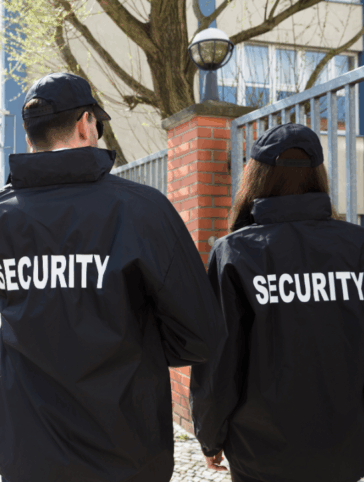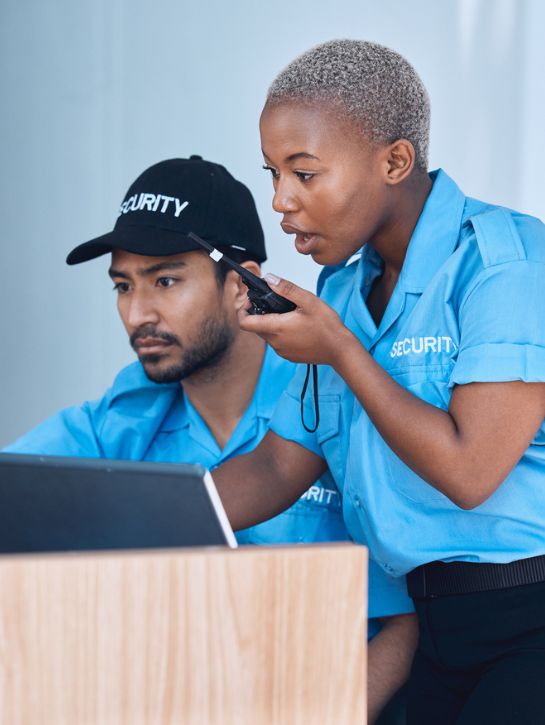Summer is a time for travel and fun, but it’s also a time of increased security needs. As the vacation season kicks off, these security guard summer safety tips will help firms keep their workers safe and ensure they have adequate insurance coverage.
Hotels Have Increased Security Needs
The nature of hotels makes them vulnerable to security risks. People are often traveling with cash and other valuables, which may make them easy targets for thieves. Large crowds of people who are unfamiliar with the area means property damage is another concern. There’s also the risk of violence.
As an example of how security issues plague hotels, KTNV 13 Investigates says there’s been an increase in hotel room burglaries, sometimes while the victims are sleeping in the room, including when the victims say the deadbolt locks were in use.
Travel to popular destination spots increases during the summer, which translates to higher hotel occupancy rates and increased security risks. To protect their properties, employees, and guests, many hotels hire licensed security guards. Doing so creates a visible deterrent to potential wrongdoers and promotes a peaceful environment.
The following tips will help ensure that security services are thorough, effective, and safe for guests, employees, and contracted workers.
1. Provide Specialty Training to De-Escalate Situations
Vacations are supposed to be fun, but they may also be stressful. Routines and sleep can be disrupted, causing disputes. In some cases, those with different customs and cultures may become frustrated. When tensions are already running high, the presence of a security guard can either amplify or calm the stress. When security guards have received training in de-escalation techniques, the latter becomes more likely.
2. Assess Risks in Additional Facilities
The hotel lobby, hallways, and rooms aren’t the only places where security issues may arise. Other hotel amenities, such as pools, workout areas, bars, and restaurants, are also vulnerable to crimes and conflict. Hotels should work with security personnel to control access and reduce risks associated with these areas. Security firms should also determine whether the scope of services they provide aligns with their insurance carrier’s coverage scope and best practices.
- Pools: Guests’ property may be vulnerable to theft while they’re swimming. Confirm that the pool requires key entry by guests. Also, verify that the hotel does not expect security guards to provide lifeguard services.
- Bars: Confirm whether the scope of the security guard services includes the bar area. If it does, the insurance carrier may require additional information. What is the occupancy? Does the hotel have a rooftop bar open to the public? If so, what are the bar’s hours of service and the working hours of the security guards?
- Restaurants: It’s also important to confirm whether the scope of the security guard services includes the restaurant. What is the occupancy? Does live music draw big crowds? Is the restaurant open to the public? What are the hours of service
3. Assess Restricted or Isolated Areas
Restricted and isolated areas may be more vulnerable to crime, especially late at night and in the early morning. These areas may include alleyways where trash bins are located and closed amenities or areas restricted to staff that are not in use at night. In addition to considering appropriate security measures (such as video surveillance), determine whether the scope of services specifies that a guard will be stationed in these areas of the hotel.
4. Keep Security Guards Safe and Insured
As with all employment situations, care should be taken to keep security workers safe. For example, If security guards have to work long hours outside in the sun, what is the process for preventing heat-related work comp claims?
In some cases, hotel clients may ask your firm’s security guards to perform services other than security detail. If so, the service contract should clearly outline the tasks to be performed, so you’re fully aware of the associated risks and have proper insurance coverage in place.
Train guards to alert their supervisors if customers routinely ask them to complete tasks outside their contractual duties such as performing maintenance or making deliveries to guest rooms. While these added services are helpful, they create added safety and liability exposures for your firm.
These security guard summer safety tips will help keep contracted security professionals safe. If you need workers’ compensation insurance and risk management resources tailored for security guards, Tangram can help.
Learn more about our security guard program.




